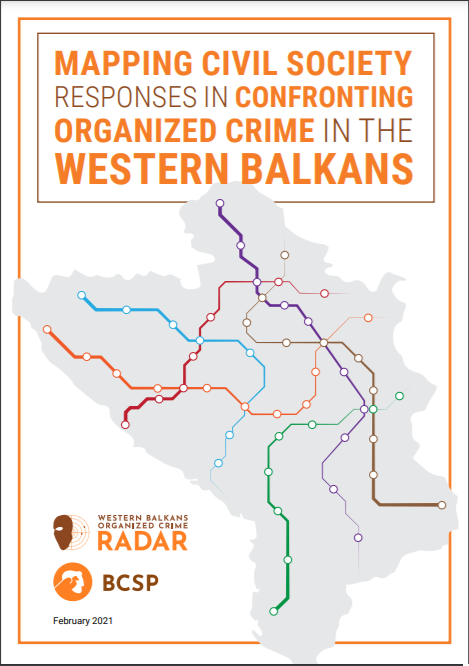23/03/2021

Belgrade Center for Security Policy (BCSP)
Embassy of the Netherlands in Belgrade, Royal Norwegian Embassy in Belgrade, the German Marshall Fund of the United States
Plator Avdiu, Shpat Balaj, Dina Barjamspahić, Imer Dulaš, Dragana Janićijević, Miloš Jovanović, Magdalena Lembovska, Benjamin Plevljak, Redion Qirjazi, Romario Shehu
Organised crime has become so normalised in the WB that one cannot meaningfully separate it from politics, business or many other aspects of everyday life. In the EU’s Credible Enlargement Strategy of 2018, it was stated that “countries show clear elements of state capture, including links with organised crime and corruption at all levels of government and administration”. If a state is captured and linked with organized criminal groups, how can one expect its effective response to organised crime?
This ‘catch-22’ is what this report – the first of its kind produced by the Western Balkans Organised Crime Radar initiative – aims to address. Instead of focusing on the repressive side of fighting organised crime, which is the domain exclusive to the state law enforcement agencies, it took a different perspective. The report looks into the experiences of numerous civil society organisations in confronting organised crime in the WB, i.e. what it is that they do to raise awareness about organised crime, investigate and report high-profile cases, increase societal resilience to crime, monitor and improve policies, and offer support to help adversely affected victims and communities.
The analysis presented in this report encompasses an assessment of CSOs’ resources, their knowledge base and most successful approaches, but it also identifies the challenges faced by practitioners and provides guidelines on how to address them. The team of researchers has collected data by conducting extensive desk research, interviews with experts, practitioners and journalists, as well as through focus group discussions with law enforcement agencies. The results are presented in separate chapters for each of the WB6, followed by key findings concerning the common characteristics and challenges from a comparative perspective.
Opinions expressed in the publication are sole responsibility of the authors and do not necessarily represent those of the Netherlands Embassy in Belgrade, Royal Norwegian Embassy in Belgrade, the Balkan Trust for Democracy, the German Marshall Fund of the United States, or its partners.